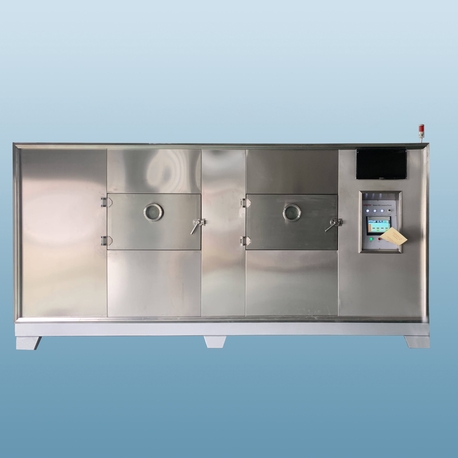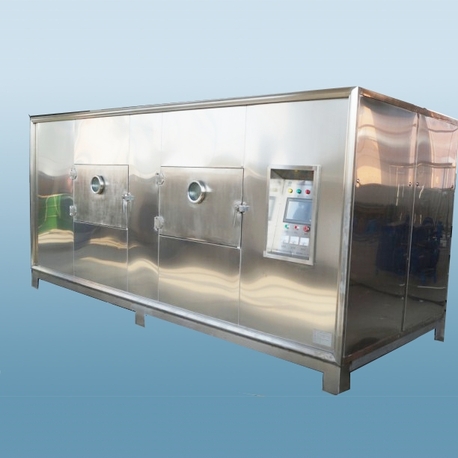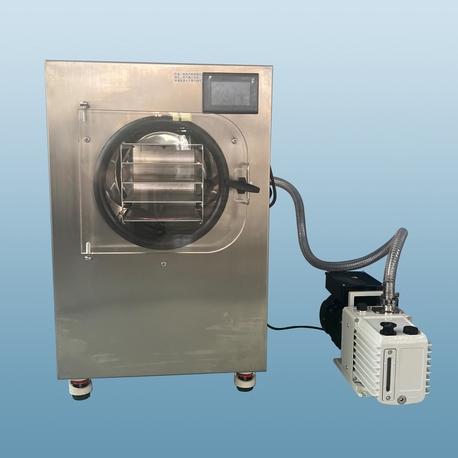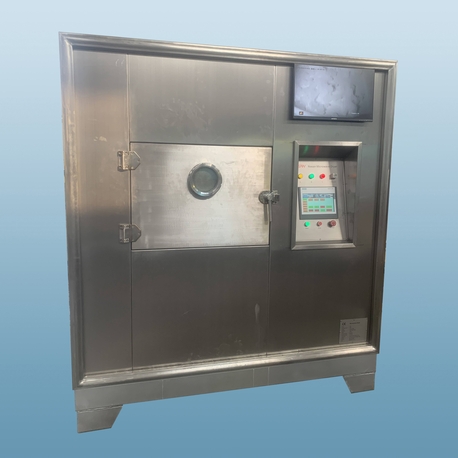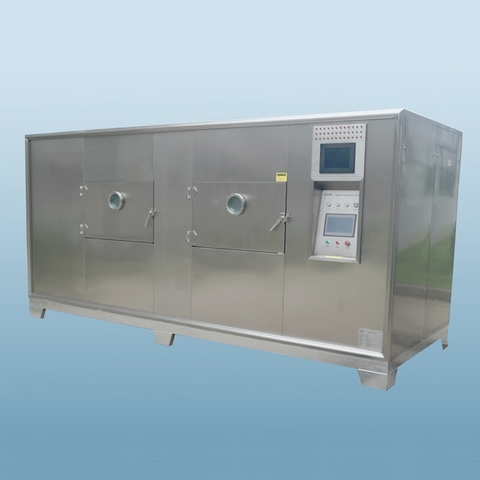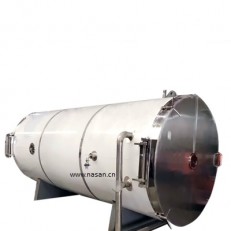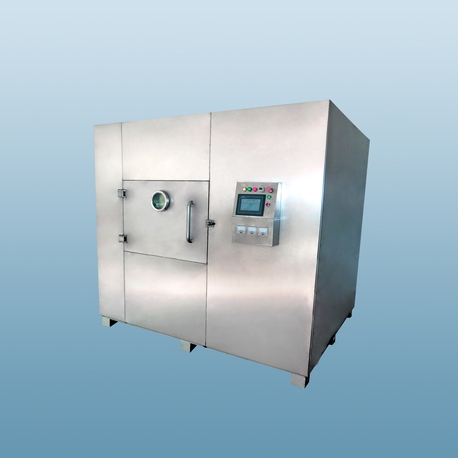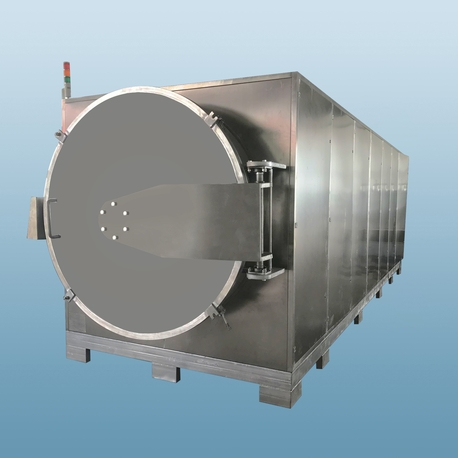In today's world, where sustainability and long-term storage solutions are gaining importance, many people are curious about innovative appliances that can make a difference. One such device that has been generating buzz is the freeze dryer. But what exactly is a freeze dryer, and why is it becoming a popular choice for households and industries alike? This article dives deep into the world of freeze drying, covering everything from its basic functionality to practical applications. Whether you're a home user looking to preserve garden harvests or a professional in need of reliable storage methods, understanding the freeze dryer can open up new possibilities. By the end of this read, you'll have a clear picture of how a freeze dryer works, its benefits, and how to make the most of it. Let's get started!
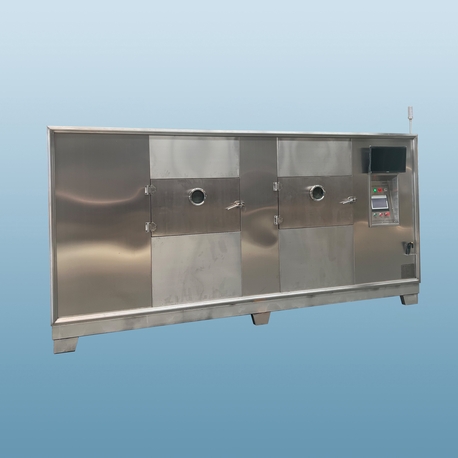
What Is a Freeze Dryer?
A freeze dryer, also known as a lyophilizer, is a specialized device that removes moisture from products through a process called lyophilization. This involves freezing the material and then reducing the surrounding pressure to allow the frozen water to sublimate directly from solid to gas. Essentially, a freeze dryer preserves items by eliminating water without causing damage to their structure, nutrients, or flavor. This method is far superior to traditional drying techniques, such as air drying or dehydrating, because it maintains the original texture and composition. Historically, freeze dryers were used primarily in scientific and industrial settings, but recent advancements have made them accessible for home use. From food to pharmaceuticals, the freeze dryer has proven to be a versatile tool for long-term preservation.
How Does a Freeze Dryer Work?
The operation of a freeze dryer involves a series of precise steps to ensure effective moisture removal. First, the product is placed in the freeze dryer chamber and frozen to extremely low temperatures, typically between -30°C and -50°C. This freezing phase solidifies the water content within the material. Next, the freeze dryer creates a vacuum inside the chamber, lowering the pressure to a point where ice can transition directly into vapor without passing through the liquid phase—a process known as sublimation. During this stage, the freeze dryer applies controlled heat to facilitate the sublimation, drawing out the moisture over several hours or days, depending on the product. Finally, the freeze dryer seals the dried product, often in airtight packaging, to prevent reabsorption of moisture. This meticulous process is what sets the freeze dryer apart, as it preserves up to 97% of nutrients and original qualities, making it ideal for sensitive materials like fruits, vaccines, or historical artifacts.
Benefits of Using a Freeze Dryer
Investing in a freeze dryer comes with a host of advantages that cater to various needs. One of the primary benefits is the exceptional shelf life extension it provides—freeze-dried products can last for years without refrigeration, reducing food waste and saving money. Additionally, a freeze dryer retains the nutritional value, color, and flavor of foods better than other methods like canning or dehydrating. This makes it a favorite among health-conscious individuals and outdoor enthusiasts who rely on lightweight, nutrient-dense meals. Another key benefit is the versatility of a freeze dryer; it can handle a wide range of items, from full meals and dairy products to flowers and biological samples. Moreover, using a freeze dryer supports sustainability by allowing users to preserve seasonal produce and reduce reliance on processed foods. In emergencies or for prepping purposes, a freeze dryer ensures a reliable food supply, highlighting its practical value in everyday life.
Applications of Freeze Dryers in Different Industries
The utility of a freeze dryer extends far beyond home kitchens, playing a critical role in multiple industries. In the food industry, a freeze dryer is used to produce items like instant coffee, camping meals, and snacks, offering convenience without compromising quality. The pharmaceutical sector relies heavily on freeze dryers to preserve vaccines, antibiotics, and other temperature-sensitive drugs, ensuring stability and efficacy during storage and transport. In biotechnology and research, a freeze dryer is essential for preserving enzymes, cells, and samples for long-term study. Even the arts and museum fields use freeze dryers to protect delicate artifacts and specimens from degradation. For households, a freeze dryer enables families to create their own emergency food supplies or specialty products, showcasing its adaptability. This broad applicability underscores why the freeze dryer is a valuable asset across diverse fields.
How to Choose the Right Freeze Dryer for Your Needs
Selecting the appropriate freeze dryer depends on several factors, including intended use, budget, and space. First, consider the capacity: smaller home freeze dryer models might handle batches of a few pounds, while industrial units can process large volumes. If you're preserving family meals or garden produce, a compact freeze dryer could suffice, but for commercial purposes, a larger model is advisable. Next, look at features like automation, cycle times, and energy efficiency—modern freeze dryers often include digital controls for ease of use. Price is another key consideration; home freeze dryers can range from a few hundred to several thousand dollars, so assess your long-term savings from reduced waste. Additionally, check for accessories like trays and pumps, as these affect functionality. Reading reviews and comparing brands can help you find a reliable freeze dryer that meets your specific requirements, ensuring a worthwhile investment.

Operating and Maintaining Your Freeze Dryer
Using a freeze dryer efficiently requires understanding its operation and upkeep. To start, always follow the manufacturer's instructions for loading products—even distribution on trays ensures uniform drying. Pre-freezing items can speed up the process, and avoiding overloading the freeze dryer chamber helps maintain performance. During operation, monitor the cycle for any issues, such as temperature fluctuations, and use the machine in a well-ventilated area to prevent overheating. Maintenance is crucial for longevity; regularly clean the freeze dryer trays and seals to prevent contamination, and check the vacuum pump oil if applicable. Storing the freeze dryer in a dry place and scheduling professional servicing annually can prevent breakdowns. By adhering to these tips, you'll maximize the lifespan of your freeze dryer and enjoy consistent results, whether you're preserving food or other materials.
In conclusion, a freeze dryer is a powerful tool that offers numerous benefits, from extending shelf life to supporting various industries. By understanding its workings, applications, and maintenance, you can make an informed decision about incorporating one into your life. If you're looking for a sustainable and efficient preservation method, a freeze dryer might be the perfect solution.
Frequently Asked Questions About Freeze Dryers
Q1: What types of foods can I process with a freeze dryer?
A1: A freeze dryer can handle a wide variety of foods, including fruits, vegetables, meats, dairy products, and even complete meals like soups or stews. It's also suitable for herbs, coffee, and desserts, as it preserves their texture and flavor effectively.
Q2: How long does the freeze drying process typically take?
A2: The duration varies based on the product and freeze dryer model, but it generally ranges from 20 to 48 hours. Factors like moisture content, thickness, and the specific settings of the freeze dryer can influence the time required.
Q3: Is a freeze dryer energy-intensive to operate?
A3: While a freeze dryer does consume energy, especially during the freezing and vacuum phases, many modern models are designed for efficiency. Home units often use comparable energy to other kitchen appliances, and the long-term savings from reduced food waste can offset the costs.
Q4: Can I use a freeze dryer for non-food items?
A4: Yes, a freeze dryer is versatile and can be used for non-food applications, such as preserving flowers, pharmaceuticals, or biological samples. However, always follow guidelines to avoid cross-contamination and ensure safety.
Q5: What is the main difference between a freeze dryer and a dehydrator?
A5: The key difference lies in the process: a freeze dryer uses freezing and sublimation to remove moisture, preserving nutrients and structure better, while a dehydrator uses heat and air circulation, which can lead to nutrient loss and texture changes. A freeze dryer typically results in a longer shelf life and higher quality output.



